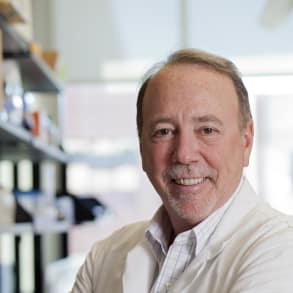Stephen P. Ethier, Ph.D., director of the Center for Genomic Medicine at MUSC Health, discusses how cancer genomics sets the stage for more personalized cancer therapies.
View More on this topic.
More at STAT blog.
STEPHEN ETHIER: Well it's exciting today that we are doing cancer genomics almost on a routine basis. And soon, we will be doing it for every patient here. So cancer patients who come to the Hollings Cancer Center, whether it's in breast cancer or lung cancer or other cancer types, as part of their diagnosis, we're analyzing the DNA from their cancers. Identifying the specific genes that are at the cause of their individual tumors. And using that to help develop individualized treatment strategies. Using that to help design clinical trials on new drugs that target some of these genes. And so this really puts us really at the forefront of genomic medicine in cancer and personalized medicine, precision medicine. This really puts us really on the cutting edge of that kind of work. And in this regard, team science is really essential. No one can do this kind of work on their own. So this is where it's critically important for clinicians who are seeing the patients, the surgeons, the medical oncologist, the radiation oncologist to interact with those of us in the laboratory. To interact with people on the computational side and the genomic side. To be able to identify those patients who have those particular tissues from those patients into the lab, develop model systems from those tissues where we can do experiments, and circle that back to the clinic for those very patients. I think we're on a really great trajectory to get where we ultimately want to be. And I think what we ultimately want to be is in a situation where every cancer patient gets a tailored personalized therapeutic strategy. And that really requires an ability to have full molecular profiling of every cancer patient that walks in the door. Be able to take that molecular data and translate it into a tailored, specific treatment strategy for that individual. And when we're able to do that on a routine basis, I think we're going to see even more really amazing gains in our ability to manage cancer and to treat cancer.





